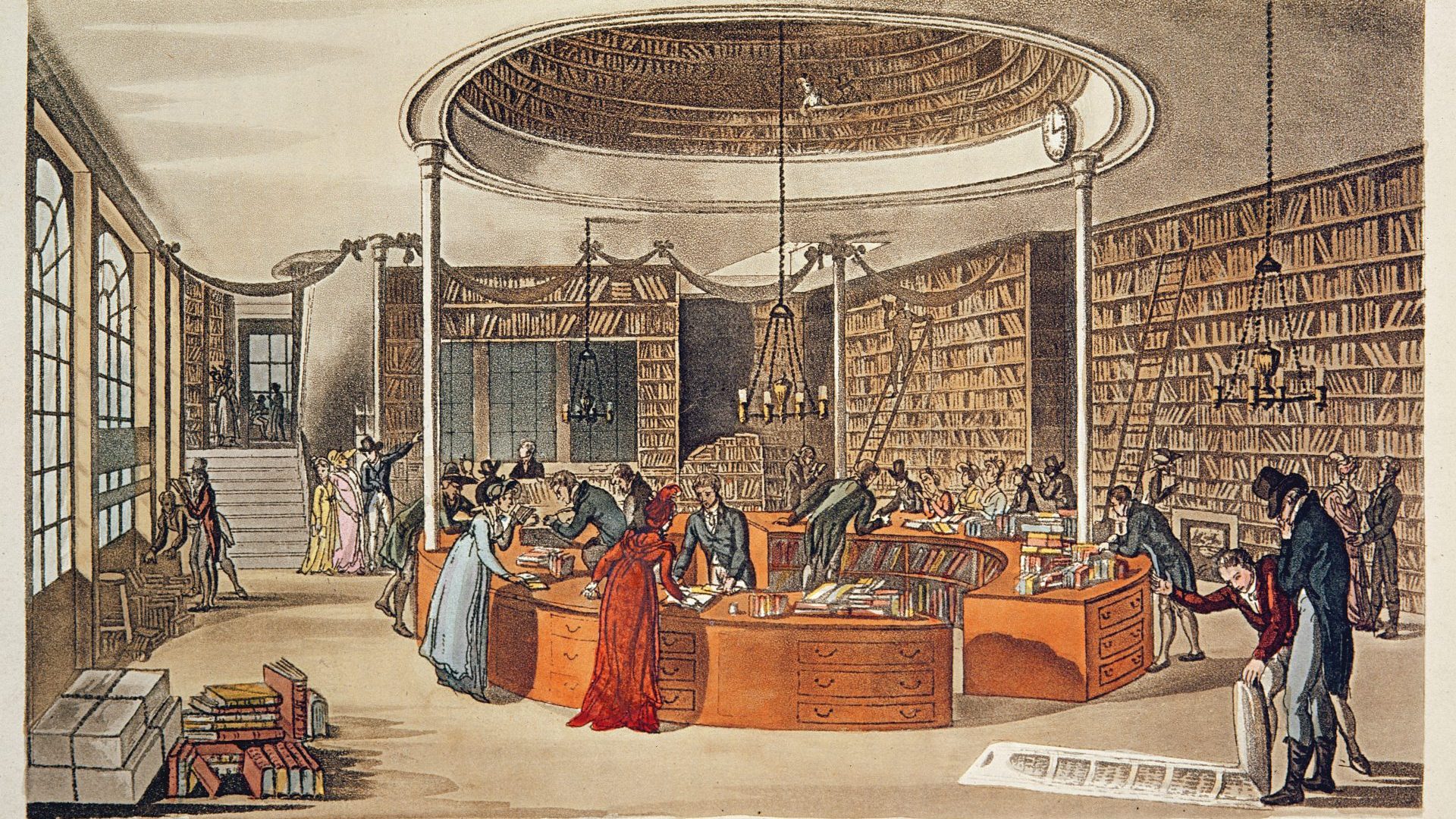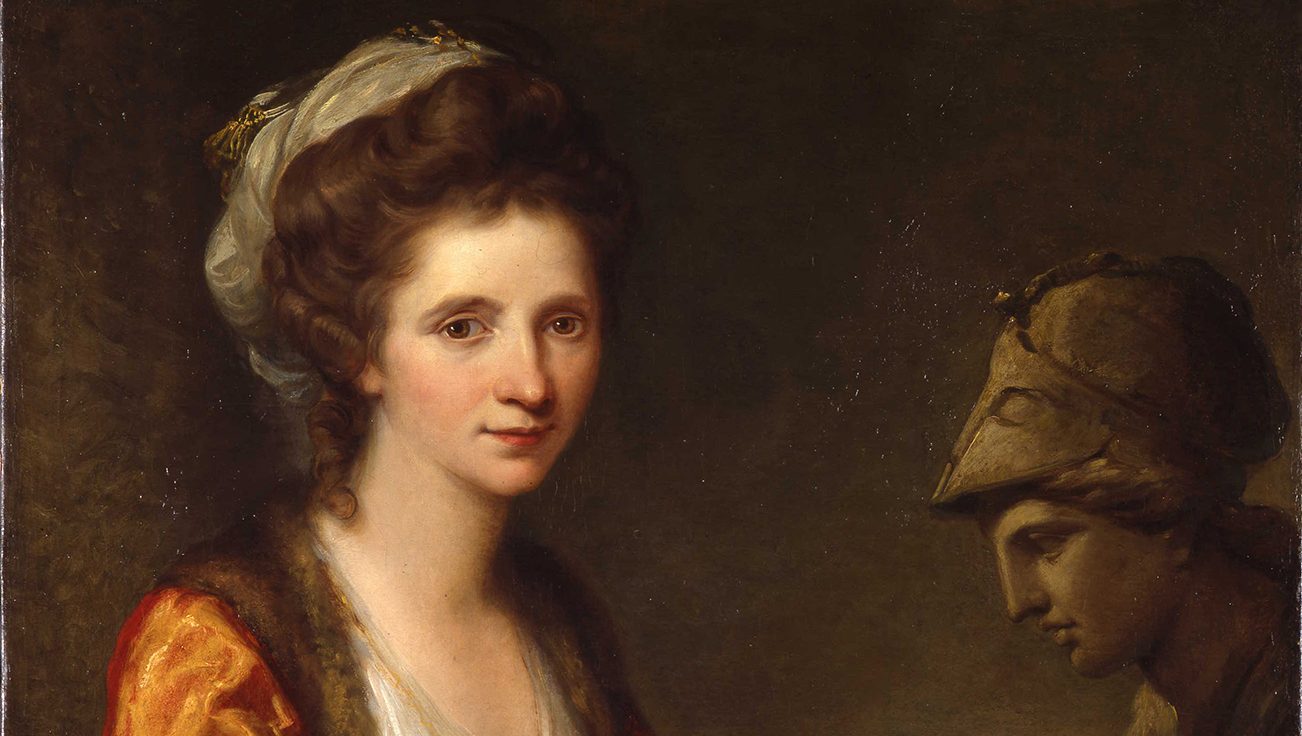There are few finer pleasures in life than wandering around a good bookshop. In fact, the bookshop doesn’t even necessarily have to be good – any bookshop will do. It’s the quiet thrill of leaving the bustle of the street for that comforting stillness that matters, the silence of contemplation among the millions of words lining the shelves, the sense of time seeming to slow around you, all hurry forgotten.
We all have our favourites – the flagship Foyles on London’s Charing Cross Road, Topping’s in Bath and Bookpoint in Dunoon are my current top three – and we are all familiar with the sense of awed expectation as we walk through the door to see those shelves lined with boundless potential. At this point any titles I’ve been meaning to look for always go clean out of my head and I end up just browsing, head tilted, crossing one foot over the other and savouring my slow progress along the ranks of spines.
The bookshop experience has a long history in Britain. Hatchard’s in Piccadilly has been going since 1797 while the Cambridge University bookshop can claim almost half a millennium’s worth of trading, dating back to 1581.
During those centuries of British bookselling there have been few more significant figures than James Lackington, who opened his first premises in London on Featherstone Street in Farringdon 250 years ago this year. He is far from a household name, but as well as being largely responsible for the bookshops we know today, Lackington was also an extraordinary character: someone who came from extreme poverty, developed an insatiable passion for reading and had enough of a head for business to revolutionise the bookselling industry in a way that fully benefited the reader.
James Lackington was born in 1746, the son of a Somerset shoemaker whose heavy drinking left the family destitute. When he was 10 years old Lackington was apprenticed to a pie-maker, taking his first steps in commerce by selling pies on the street and becoming so successful that his employer could not keep up with the demand. At 14 his father sent him to a cobbler in Taunton to learn the family trade where, crucially, he also taught himself to read. Lackington became addicted to books, visiting local fairs to peruse the secondhand bookstalls, spending whatever cash he could scrape together on battered translations of the Greek and Roman classics.
Books soon dominated his life, and when he moved to Bristol after his apprenticeship, every spare penny – of which there were not many for a journeyman shoemaker – was spent on them. When he married in 1770 he levelled with his wife, Nancy, that “my attachment to books… and my total disregard for money has prevented me from saving any”.
To improve his circumstances, Lackington moved to London in 1773, but even in the capital he struggled to make a living from cobbling. By Christmas Eve the Lackingtons were living in a single small room with just a half-crown to see them through the festive period. Nancy sent her husband out to buy whatever food they could afford and I think every bibliophile will nod solemnly in recognition at what happened next.
His route to the grocery involved passing a bookshop, but there was no way James Lackington was ever going to pass a bookshop. When he spotted a beautifully illustrated secondhand edition of Edward Young’s long poem Night Thoughts, “down went the half crown and off I went home”.
When questioned by Nancy on what comestibles he had brought home for their sparse Christmas table, Lackington “began to harangue on the superiority of intellectual pleasures over sensual gratifications”.
His wife’s shoulders drooped and she asked, wearily, “and so instead of buying a dinner I suppose you have, as you have done before, been buying books with the money?”
Lackington responded in a manner familiar to anyone who has ever emerged from a bookshop much lighter in the purse to face the raised eyebrow of a significant other.
“I think, said I, that I have acted wisely for had I bought a dinner we should have eaten it tomorrow, and the pleasure would have been soon over,” he wrote in his autobiography. “Yet should we live fifty years longer we shall still have Night Thoughts to feast upon.”
Shortly afterwards, Lackington’s fortunes improved thanks to a legacy left to him by his grandfather, meaning that when offered the opportunity to lease a shoemaker’s premises in Featherstone Street in the spring of 1774 he not only had the means, he could also fulfil a long-nurtured ambition by selling books as well as shoes. When asked by the landlord why on earth he would do that, Lackington answered, “that I loved books, and if I could be but a bookseller I would have plenty of books to read, which was the greatest motive I could conceive that would induce me to make the attempt”.
Beginning with items from his personal library and a selection of divinity books purchased from the family of a deceased cleric, 250 years ago next month James Lackington embarked on a career that would not only change his own fortunes but transform the nature of the industry itself.
Within six months he had become successful enough to move into larger premises, abandon his mallets, awls and uppers and concentrate entirely on bookselling.
Remembering his own difficulties in funding his reading habit, Lackington was determined to make books affordable to those outside the ranks of the wealthy. Literacy was on the increase in late 18th-century London and a more literate population also found itself with more leisure time available for reading than ever before. Yet books remained an expensive luxury and bookshops were intimidating places, their high-end status discouraging casual browsing and physical handling of the volumes. Buyers almost had to know exactly what they wanted when they walked through the door. Lackington changed all that.
The first move he made to revolutionise bookselling was to abolish credit. His shop was a strictly cash-for-goods operation, something practically unheard of in the Georgian era. Without having to wait long periods for payment he did not have to take out loans to fund new stock and could pass on what he saved in interest to the customer.
He also transformed the way the industry dealt with large numbers of unsold books, volumes known to this day as “remainders”. When Lackington entered the business there was a racket by which booksellers would buy up large unsold quantities of a particular title for peanuts and burn them, keeping stocks low and therefore the price high. Lackington, appalled as much by the destruction of precious volumes as the sharp practice, began buying up quantities of unsold books and selling them at knockdown prices.
He also set his prices at the lowest level he could and, unlike his contemporaries, refused to haggle, posting a sign over his shop that read “Lowest price marked on every book, no abatement made on any article”.
Naturally these customer-friendly actions did not endear him to competitors.
“This part of my conduct, though evidently highly beneficial to the community and even to booksellers, created me many enemies among the trade,” he wrote, “some of whom… determined to effect my ruin, which indeed they daily prognosticated with a demon-like spirit”.
By 1794 he was so successful he could open what was then the biggest bookshop in the world, The Temple of the Muses, a vast establishment on Finsbury Square. Ranged over four storeys with a ground floor so capacious that it was possible, according to one contemporary account, to “drive a coach and four easily between the counters”, the Temple of the Muses actively encouraged customers to spend time browsing by including on each floor a series of lounges where people could sample potential purchases at their leisure. John Keats was among those who would spend hours reading in Lackington’s in-store lounges and indeed met his first publishers John Taylor and James Augustus Hessey in the shop, where they worked as booksellers.
Lackington was also the first to think significantly about the nature of bookselling, always seeking to identify factors outside the doors of his shop that affected trade.
“I was obliged to be pretty well informed of the state of politics in Europe, as I have always found bookselling is much affected by the political state of affairs,” he observed. “If there is anything in the newspapers of consequence, that draws many to the coffee-house where they chat away the evenings instead of visiting the shops of booksellers or reading at home. The best time for bookselling is when there is no kind of news stirring.”
By the mid-1790s his annual catalogue ran to half a million books, journals and periodicals and attracted orders from as far afield as the United States. Lackington himself became a celebrity: a flag was raised over the shop whenever he was in attendance, he produced tokens with his face on them that could be redeemed in store and he rode around the city in a carriage bearing his name and his motto, “small profits do great things”.
He sold the shop in 1798 at the height of his success and retired to the West Country, becoming a Methodist preacher until his death in 1815. The premises that housed the Temple of the Muses burned down in 1841, but James Lackington’s presence still looms over the book trade and every bookshop in the land.
Whenever we loiter in a bookshop, whether on a mission to buy something specific, browsing in the hope of literary inspiration or just waiting out a shower of rain, we owe that experience at least in part to the great James Lackington. Bibliophile, businessman, eccentric and self-described “human genius”, Lackington understood commerce and people, but most importantly he understood the importance of books.
“Among all the schools where the knowledge of mankind is to be acquired,” he wrote, “I know of none equal to that of a bookseller’s shop.”




